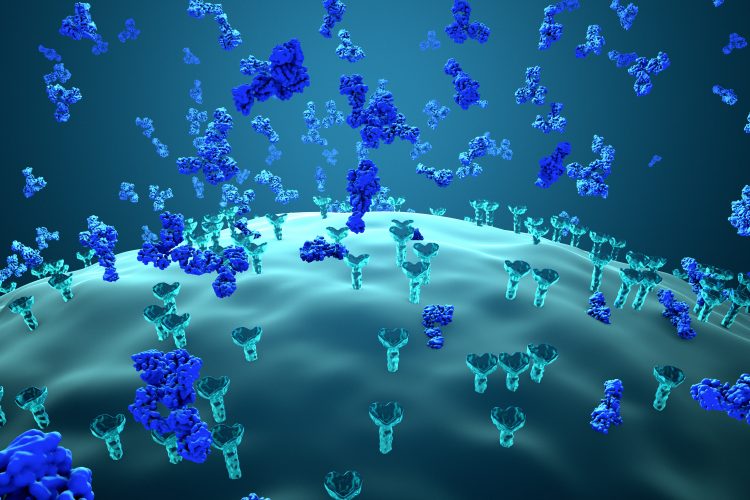On this Q&A, Krishna Polu and Dennis Pedersen, senior leaders of Commit Biologics, which is backed by Novo Holdings and Bioqube Ventures, elucidate how their expertise differs from different current therapeutic platforms and spotlight its implications for the therapy of each most cancers and autoimmune illness.

In what methods does Commit’s expertise differ from different current therapeutic platforms by way of its mechanism of motion for treating most cancers and autoimmune illnesses?
Commit’s BiCE expertise is totally different from current therapeutic platforms in the way in which it prompts and utilises part of the physique’s personal immune system, the complement system, to get rid of malignant cells and immune cells. The complement system represents an environment friendly immune mechanism for clearing pathogens, sustaining homeostasis and for exciting an adaptive immune response. Nevertheless, complement is inherently troublesome to activate and is at the moment underexploited as a mechanism for killing cells within the context of the therapy of each most cancers and autoimmune illness.
What are the precise enhancements seen within the second-generation BiCE™ molecules that contribute to their superior efficacy in complement-mediated cell killing?
Whereas our first-generation BiCE is predicated on bi-specific single area antibodies (or VHHs) and harnesses the facility of the complement system alone, our second-generation BiCE is predicated on the IgG format and so combines the complement activation equipment of the BiCE expertise with the effector features of a typical antibody (ADCC and ADCP). Along with that, our second-generation BiCE™ molecules make the most of sure advantages of typical IgGs together with an improved half-life and related pharmacokinetic profile, and decrease manufacturability dangers. The likelihood to take already validated antibodies and add potent complement activation means a shorter time to drug candidate choice, and a shorter time to get these molecules into the clinic, which in the long run will profit sufferers.
Are you able to clarify the mechanism by which Commit’s BiCE™ platform makes use of bispecific single area antibodies to activate the complement system?
Commit’s BiCE platform utilises single area antibodies to recruit complement protein C1q to the cell floor within the right orientation to attain potent activation of the classical pathway of the complement system. On this manner, BiCE molecules can direct the complement system in a extremely focused manner in opposition to cells of curiosity, resulting in potent activation of the complement system and cell killing.
What position does the complement protein C1q play within the BiCE™ platform, and the way does it contribute to potent complement activation?
Much like T-cell engagers counting on T cell health for efficacy, our BiCE molecules are depending on the presence of endogenous C1q which is abundantly current in blood and tissues. C1q is successfully recruited by the BiCE molecule within the right orientation, resulting in potent complement activation on the cell floor, leading to cell killing.
What are the potential implications of creating Commit’s BiCE™ platform into best-in-class therapeutics for sufferers with most cancers and autoimmune illnesses?
The BiCE expertise is broadly relevant and might supercharge typical monoclonal antibodies with the facility of the complement system. Therefore, the BiCE platform can generate best-in-class therapeutics with a differentiated and distinctive mechanism of motion, which might enhance the therapy of a wide range of cancers and autoimmune illnesses.
In regards to the authors
Krishna Polu, MD – Chief Government Officer of Commit Biologics

 Krishna brings 20 years of working expertise to the crew with a monitor report of pipeline development and drug approvals throughout a number of therapeutics areas. Over that interval, he served as a medical improvement government at quite a few biopharma corporations together with Equillium, Raptor Prescription drugs, CytomX Therapeutics, Affymax, and Amgen. Most just lately, Krishna served as a Principal at Purple Tree Enterprise Capital, a life sciences targeted enterprise capital agency, the place he was a part of the founding crew. At Purple Tree, he supported various the agency’s investments, together with serving as a member of the board of administrators of Bicara Therapeutics and Sardona Therapeutics and board observer for Magnus Medical. As well as, he has labored in various capacities for main enterprise capital corporations, together with Frazier Healthcare and Catalys Pacific, serving to to discovered and finance corporations. Extra just lately he served as a board member at Frazier Lifesciences Acquisition Company, a particular objective acquisition firm, which led a profitable enterprise mixture with New Amsterdam Pharma. He has additionally served as an advisor to Catalys Pacific, a enterprise capital agency targeted on new firm creation, serving to to discovered three medical stage corporations, Mineralys Therapeutics, Pathalys Pharma, and Renalys. Krishna at the moment additionally serves as an government in residence at Bioqube Ventures.
Krishna brings 20 years of working expertise to the crew with a monitor report of pipeline development and drug approvals throughout a number of therapeutics areas. Over that interval, he served as a medical improvement government at quite a few biopharma corporations together with Equillium, Raptor Prescription drugs, CytomX Therapeutics, Affymax, and Amgen. Most just lately, Krishna served as a Principal at Purple Tree Enterprise Capital, a life sciences targeted enterprise capital agency, the place he was a part of the founding crew. At Purple Tree, he supported various the agency’s investments, together with serving as a member of the board of administrators of Bicara Therapeutics and Sardona Therapeutics and board observer for Magnus Medical. As well as, he has labored in various capacities for main enterprise capital corporations, together with Frazier Healthcare and Catalys Pacific, serving to to discovered and finance corporations. Extra just lately he served as a board member at Frazier Lifesciences Acquisition Company, a particular objective acquisition firm, which led a profitable enterprise mixture with New Amsterdam Pharma. He has additionally served as an advisor to Catalys Pacific, a enterprise capital agency targeted on new firm creation, serving to to discovered three medical stage corporations, Mineralys Therapeutics, Pathalys Pharma, and Renalys. Krishna at the moment additionally serves as an government in residence at Bioqube Ventures.
He acquired his BA in human biology from Stanford College and an MD from the College of Texas Well being Science Middle, San Antonio. He accomplished his residency in inside medication on the College of Colorado adopted by a fellowship in nephrology at Harvard Medical Faculty on the Brigham and Ladies’s Hospital and Massachusetts Common Hospital.
Dennis Pedersen, PhD – Chief Operations Officer & co-founder

 Dennis has studied the connection between construction and performance of complement proteins for greater than 10 years. Dennis has a PhD from Aarhus College in Denmark and has in depth expertise inside drug improvement and challenge administration from tutorial collaborations and biotech business. Previous to founding Commit, Dennis has labored with structure-based drug discovery at Muna Therapeutics.
Dennis has studied the connection between construction and performance of complement proteins for greater than 10 years. Dennis has a PhD from Aarhus College in Denmark and has in depth expertise inside drug improvement and challenge administration from tutorial collaborations and biotech business. Previous to founding Commit, Dennis has labored with structure-based drug discovery at Muna Therapeutics.

